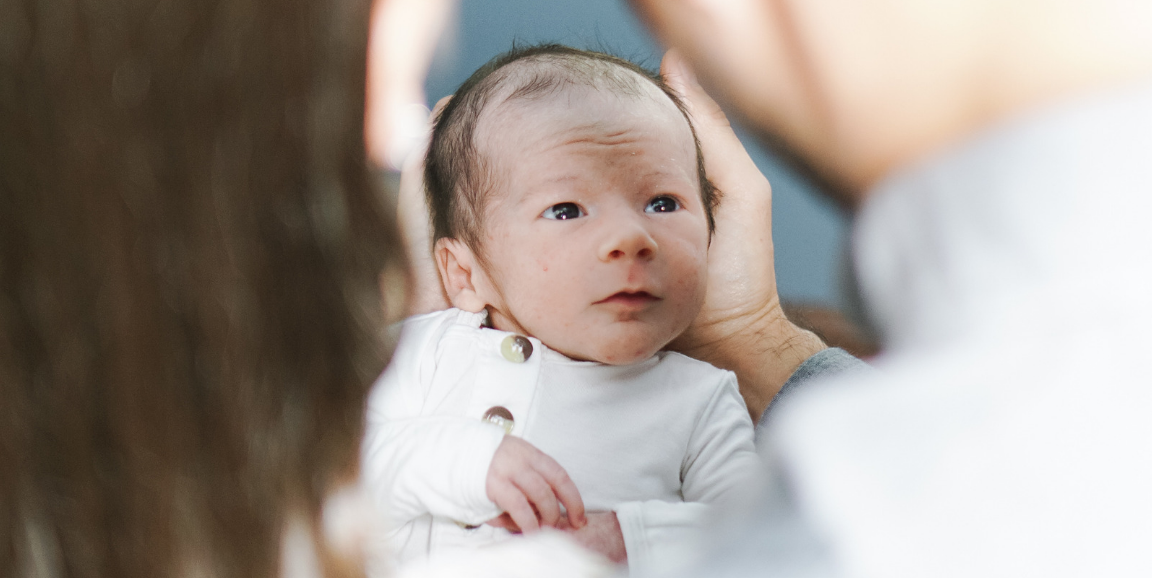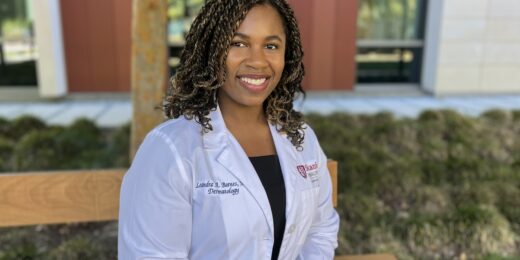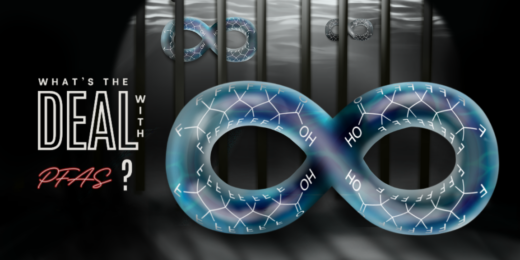"He looks just like a Shapiro," Dani Shapiro's mother told her, eyeing Dani's newborn son.
There was just one problem. Dani's mother knew that Dani was conceived in Philadelphia after she and her husband visited The Farris Institute for Parenthood, which specialized in male infertility. Neither Dani, nor the newborn, were genetically a Shapiro. But at that moment in the hospital, Dani had no reason to doubt her mother's proclamation. Instead, they shared a warm moment: mother, grandmother and grandson.
Dani Shapiro, an author of four memoirs, didn't learn the truth of her ancestry until she was 54. The discovery shook her world, and inspired her book Inheritance: A Memoir of Genealogy, Paternity, and Love, which she discussed during a recent conversation, followed by questions, at Stanford. The event was sponsored by the Stanford Center for Biomedical Ethics, Medicine and the Muse and the Program in Bioethics and Film and was moderated by Paul Costello, senior communications strategist and advisor.
"The feeling when I discovered that my paternity had been hidden from me by my parents was one of tremendous betrayal," Shapiro said. "What did this mean that they knew this about me, and that I did not know this about myself? And what did this mean in terms of our being a family together?"
She had learned from a genetic test on Ancestry.com, after her father had passed away, that he was not her biological father. At once, that moment Shapiro shared in the delivery room with her mother, and so many other moments, took on new implications.
"The emotional experience of childhood is markedly similar among (donor-conceived people who didn't know as children and) adoptees that don't know that they're adopted and then discover it. There's a sense of otherness, of not belonging, of not fitting in. Of something not being right. Something that you can't put your finger on."
"[Learning my heritage] was a story that made sense of all the other stories," she said.
Yet, she doesn't think her relationship with her father would have been any different if he was her biological father. "I don't think my father could have loved me more," she said.
At the time, a stigma surrounded infertility. Her parents had gone to Farris, which is defunct, where they received "mixed sperm," which is donor sperm mixed with sperm from the "father," and inseminated in the woman hoping to become pregnant. That way, perhaps, just perhaps, the infertile man could indeed be the biological father.
From interviews with a woman who conceived at Farris at the same time as Dani's mother, Shapiro learned more.
"[Farris] was known for donor sperm. The couple would be seated across a desk from a doctor who would openly discuss blood type, matching physical characteristics and would claim to attempt to match religions or ethnicity... a paper would be signed and then every effort would be taken to make sure that that couple if they chose to, would be able to bury that it every happened."
Following treatment, Shapiro said it was likely that her mother received "the call," informing her of the positive pregnancy test. But the language the clinic used was intentionally deceptive. They would say, "Your blood levels show that you must have already have been pregnant when you got here," Shapiro explained. This wording was thought to help families overcome the ethical peculiarity of uncertain paternity and cover up any "shame," felt by the father.
For decades, Shapiro's memoirs have dealt with the "corrosive power of secrets." Of all the secrets she explored, this one, she says, was the motherlode. "Here I was digging and digging and digging and then my shovel hit rock."
Shapiro said she hears from others about how much pain anonymous sperm and egg donations cause. "The stories that I'm hearing and the pain that I'm seeing and... the lack of public awareness that I'm experiencing is staggering," she said. "The way science has evolved, it is no longer feasible for anyone to think that they're going to be able to remain anonymous. Therefore, what do we do about that?"
Nearly everyone is curious about their biological origins, Shapiro said. "If you're using a donor that has checked the box that says I wish to remain anonymous. What you're doing is setting your child up for rejection. "
She also cautioned others that taking a consumer genetic test may not be straightforward. "The messaging is... this is fun! [But] there are profound discoveries being made all the time."
She said a small percentage of test takers uncover their parents are not who they thought they are.
"Understand that there is always that possibility. Be aware," said Shapiro. "I still find it so painful."
Photo by Jessica To'oto'o




